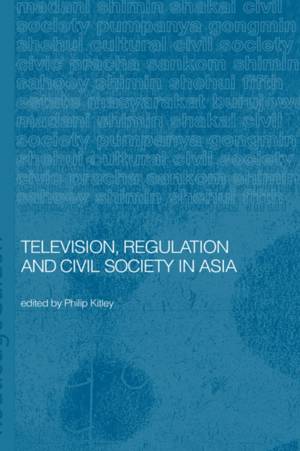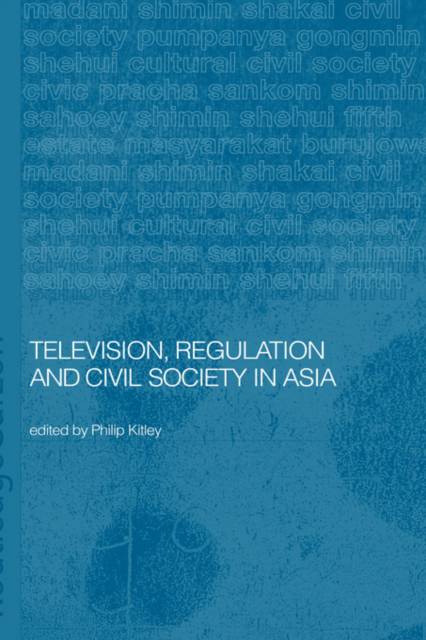
- Afhalen na 1 uur in een winkel met voorraad
- Gratis thuislevering in België vanaf € 30
- Ruim aanbod met 7 miljoen producten
- Afhalen na 1 uur in een winkel met voorraad
- Gratis thuislevering in België vanaf € 30
- Ruim aanbod met 7 miljoen producten
Zoeken
€ 274,95
+ 549 punten
Omschrijving
This highly topical book exposes the tensions between state policies of broadcasting regulation and practices of civil society in the Asian region which is struggling with its incorporation into a new globalised, electronic information and entertainment world. Kitley critically compares Western principles of broadcasting, civil society and cultural regulation with alternative 'Asian' practices of regulation and organisation. Over the past forty years Asian states have used television as a normative cultural force in nation building, but more recently many states have deregulated their television sectors and introduced national commercial and international satellite services. As Asian states wrestle with a perceived loss of cultural control and identity through deregulation, this book considers their viewpoints and the question of whether the television public sphere offers space for the representation of popular sovereignty, and transversal concerns about human rights, press freedom, gender, environmental and world trade issues.
Specificaties
Betrokkenen
- Auteur(s):
- Uitgeverij:
Inhoud
- Aantal bladzijden:
- 282
- Taal:
- Engels
Eigenschappen
- Productcode (EAN):
- 9780415297332
- Verschijningsdatum:
- 12/12/2002
- Uitvoering:
- Hardcover
- Formaat:
- Genaaid
- Afmetingen:
- 156 mm x 246 mm
- Gewicht:
- 557 g

Alleen bij Standaard Boekhandel
+ 549 punten op je klantenkaart van Standaard Boekhandel
Beoordelingen
We publiceren alleen reviews die voldoen aan de voorwaarden voor reviews. Bekijk onze voorwaarden voor reviews.











